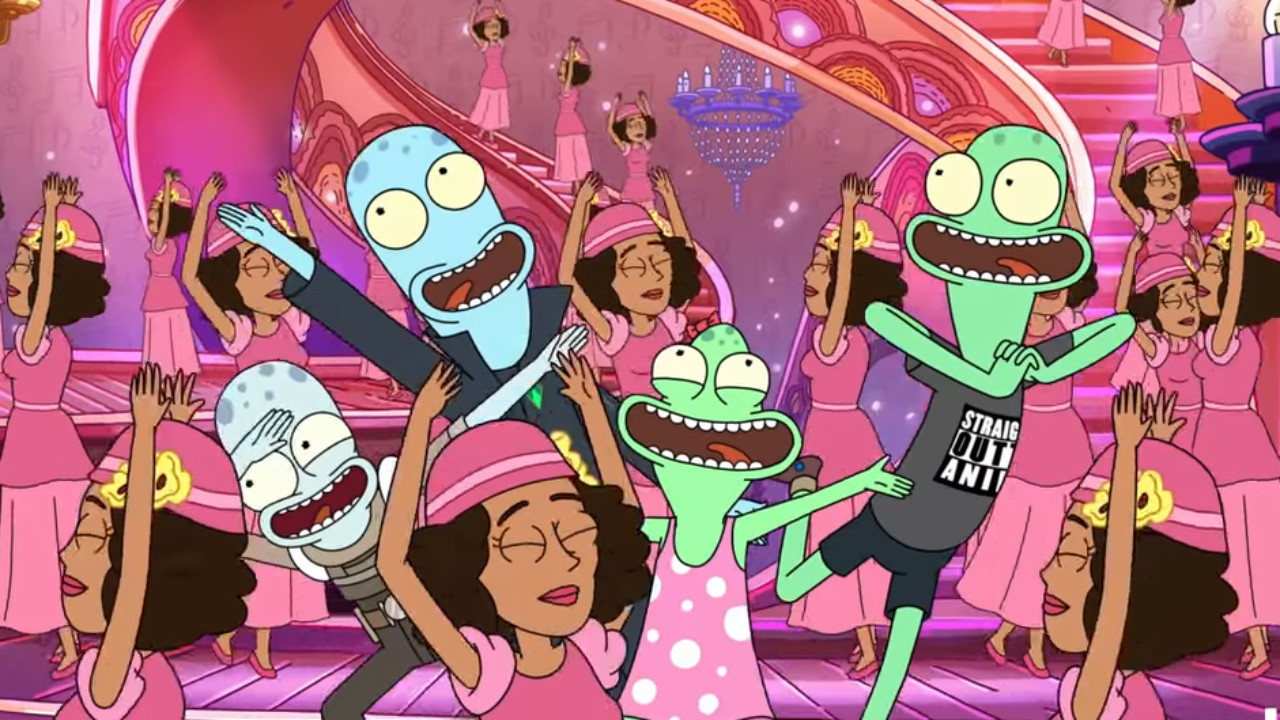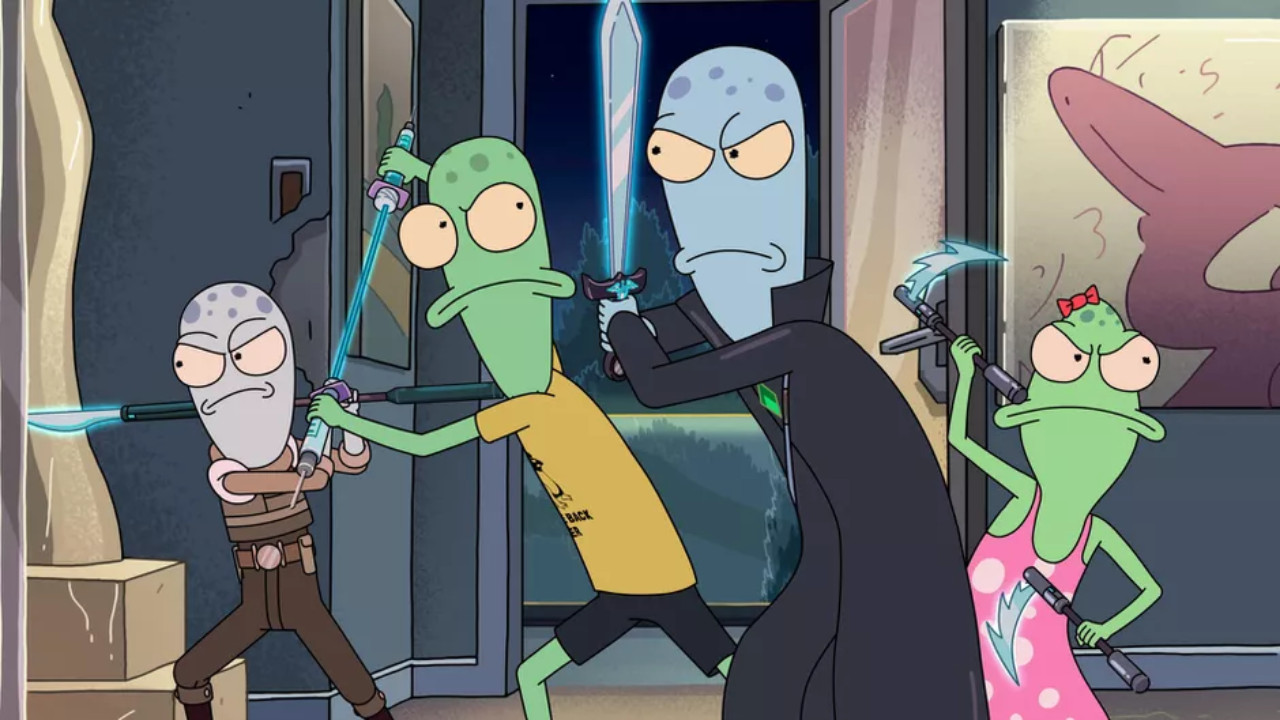GamesRadar+ Verdict
A solid, if unspectacular premiere, that borrows heavily from Roiland’s other show.
Why you can trust GamesRadar+
Like Rick and Morty? You could do a lot worse than Solar Opposites, the new comedy series heading to Hulu. Both shows are co-created by Justin Roiland (the former by Dan Harmon, the latter with Mike McMahan) and each share the same animation style and love for anarchical, off-the-cuff humour.
In fact, Solar Opposites could easily be mistaken for an episode of Rick and Morty’s Interdimensional Cable, such are the similarities. And yet, while Rick and Morty fans will feel right at home, this new show does just enough to stand apart as the breezier, goofier relative of the Adult Swim smash hit.
The opening episode “The Matter Transfer Array” introduces aliens Korvo (Roiland, doing what amounts to essentially a toned-down Rick voice) and Terry (Thomas Middleditch) as they struggle to acclimatise to life on Earth. Joining them are the younger members of the extra terrestrial brood: the hormonal Jesse, the impulsive Yumyulack, and the baby creature Pupa. As a family unit, it is immediately more cohesive than the Smith clan in Rick and Morty, with the first episode showing them bouncing off each other in a more organic, entertaining way than the nihilistic approach Rick takes to his relatives. However, that family focus soon melts away as the show’s early missteps are exposed.
Solar Opposites’ tone is confused and erratic. The opening episode includes a handful of uncensored f-bombs, sex references, and even a torture scene that feels out of place with the generally lighter, fluffier tone that is cultivated elsewhere. It’s wacky one moment, then starts cursing like a sailor the next. The disconnect doesn’t quite work for the time being, though there’s potential for it to be refined into something that pushes the boundaries more (or doesn’t) in future – but it will struggle to do both effectively.

While the show could be accused of having an identity crisis, it’s not lacking in confidence. Solar Opposites settles into a rhythm early with a story that would normally come in a show’s third or fourth season. There’s no hand-holding or real exposition outside of the voiceover in the opening title card – and that allows for a greater degree of freedom, both in terms of structure and plot.
The main story sees Korvo and Terry attempting to befriend a TV character called Funbucket after mistakenly believing that he’s another alien lifeform on Earth. Their plans to meet Funbucket provide the vehicle for plenty of the episode’s funniest moments, including Korvo creating his own bastardised version of Funbucket after the original version shuns the pair.
Less strong, however, is the B-plot. Jesse and Yumyulack toy with their high school bully using shrink rays and mazes. The antics are fairly amusing but the premise quickly wears thin. Splitting the two plotlines evenly and giving every character equal screen-time feels like the wrong decision in retrospect. A stronger focus on one or the other would have carried the episode far better.
Overall, though, Solar Opposites is a show that has hit its groove far earlier than Rick and Morty ever did. Roiland’s knack for improvisational humour and making the most mundane sitcom tropes crackle with wit, energy, and imaginative sci-fi imagery was honed elsewhere and transferred over to the Hulu series to a decent degree of success.
Is Solar Opposites the next Rick and Morty? It’s too soon to say either way. There are promising early signs that Solar Opposites will forge its own identity away from Roiland’s other comedy series – even if the two aren’t exactly worlds apart.
Solar Opposites starts May 8, only on Hulu.
I'm the Senior Entertainment Writer here at GamesRadar+, focusing on news, features, and interviews with some of the biggest names in film and TV. On-site, you'll find me marveling at Marvel and providing analysis and room temperature takes on the newest films, Star Wars and, of course, anime. Outside of GR, I love getting lost in a good 100-hour JRPG, Warzone, and kicking back on the (virtual) field with Football Manager. My work has also been featured in OPM, FourFourTwo, and Game Revolution.




